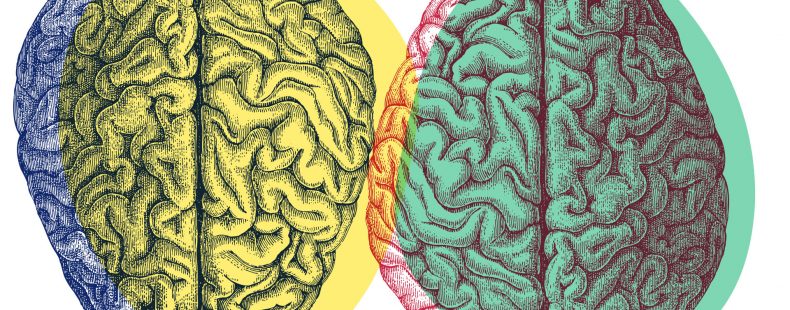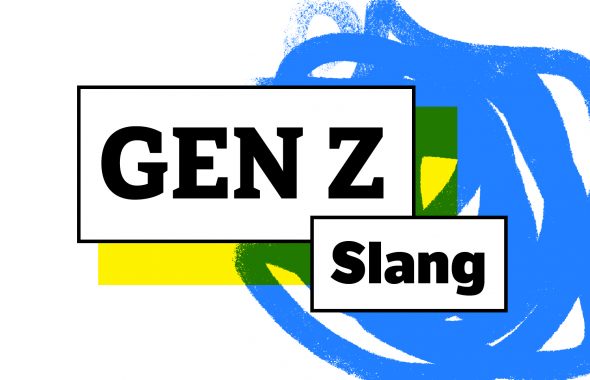All brains are not the same. This is part of what the word neurodiversity is often used to express. But both the word and the concept are subject to varying use and interpretation.
In this article, we’ll discuss the evolving conversations and preferences around words like neurodiversity, neurotypical, neurodivergent, and others. We’ll focus on some of the key terms you need to know to be aware and respectful of neurological differences and the language that’s used to talk about them—especially as that language continues to evolve.
We’ll also explain how the word neurodiversity relates to autism, dyslexia, ADHD, and other neurological differences.
🔑 Key takeaway
Discussion and preferences around the topic of neurodiversity—and the term itself—vary widely, and are continuing to evolve. Regardless of how it is specifically interpreted, the word neurodiversity is often a very broad term that encompasses a huge variety of neurological variations.
neurodiversity
There is ongoing discussion and debate around the term neurodiversity, including how the word should be defined or used. Some use the word neurodiversity to refer to the concept that neurological diversity—the differences in how brains function or are structured—is a biological fact of life. Others use the word to refer to a social movement focused on supporting people with neurological differences. Some people identify or are described as being part of a “neurodiversity movement,” but even members of this community may have very different definitions of and stances on neurodiversity.
Our dictionary definition of neurodiversity is “the variation and differences in neurological structure and function that exist among human beings, especially when viewed as being normal and natural rather than pathological.”
The final part of that definition is based on the fact that many people use the term neurodiversity as a way of asserting that certain neurological variations traditionally considered and referred to as disorders should not be considered as disorders but as natural differences.
But what do we mean by neurological variations?
neurological variations
Many of those who use the term neurodiversity use it as an umbrella term to encompass many different types of what they refer to as neurological variations.
Here are some, but certainly not all, examples of the formal medical names for what are sometimes referred to as neurological variations:
- autism
- cerebral palsy
- dyslexia
- dyspraxia
- attention deficit hyperactivity disorder (ADHD)
- obsessive-compulsive disorder (OCD)
- dysgraphia
- dyscalculia
- echolalia
- Tourette’s syndrome
- synesthesia
The term neurological variations is a neutral term used by many members of the neurodiversity community (and advocates) for conditions that are often medically labeled as “disorders.” This distinction and contrast in terminology is often at the core of conversations about neurodiversity.
Many people who consider themselves part of the neurodiversity community do not discuss such neurological differences from a medical standpoint, making the assertion that such differences are not “disorders” to be “corrected” but rather natural variations and inherent parts of who they are. They argue that there is no such thing as a typical set of neurological characteristics.
As an example, the organization Exceptional Individuals states in its definition of neurodiversity that it is “an approach to education and ability that supports the fact that various neurological conditions are the effect of normal changes and variations in the human genome.” Exceptional Individuals provides resources to create understanding of neurodiversity in workplaces.
Discussion of these topics is especially prominent in the context of autism and the evolving language around it. Indeed, many autistic people object to the idea that the way their brain works is something that needs to be treated or altered.
Read more about the difference between person-first language and identity-first language.
Are neurological variations disabilities?
While some reject the idea of neurological differences as disabilities, it’s important to note that this view is not held by all, including some of those who have such differences. Indeed, some people with such differences find it important to label them as disabilities in order to fully recognize and get support for the challenges—and often discrimination—they can face.
Aiyana Bailin, writing in Scientific American, states that many of those who are part of the neurodiversity movement have a nuanced view of neurological variations and disability: “Autism and other neurological variations (learning disabilities, ADHD, etc.) may be disabilities, but they are not flaws. People with neurological differences are not broken or incomplete versions of normal people.”
And some consider their neurological differences not just as differences but as strengths. For example, the term dyslexic thinking is used to frame dyslexia as an asset as opposed to a negative.
As we continue, we’ll note some of the common identifying terms used within the neurodiversity community.
neurodiverse and neurodivergent
A person who has one (or more) of the neurological variations that fall under the neurodiversity umbrella may be described or refer to themself as being neurodivergent. The word neurodiverse may also be used in this same way.
These terms are sometimes also applied as a way of describing neurological variations themselves, as in a neurodivergent condition.
neurotypical
In the context of neurodiversity, the word neurotypical is sometimes used in contrast to terms like neurodivergent and neurodiverse to refer to those who do not have any of the neurological variations that fall under the neurodiversity umbrella.
Sometimes, the word neuroatypical is used in contrast to the word neurotypical to indicate that a person has such a neurological variation. Of course, it should be noted that preferences around the use of these terms vary, including among those within the neurodiversity community.
executive function
A term commonly used in the discussion of neurodiversity is executive function, or executive functioning. It is defined as “a set of cognitive skills used to control one’s thoughts and behavior, especially the skills needed to focus on and organize tasks.”
These cognitive skills include things like working memory, cognitive flexibility, and inhibitory control. These capacities play a role in attention, planning, managing emotions, and understanding different points of view, among other things.
These capacities are typically developed during childhood and into adolescence. Various conditions, such as ADHD, can interfere with a person’s development of these capacities, resulting in conditions that may be described as neurodivergent or in other ways.
What is the correct language to use?
There is no single answer to this question. First and foremost, remember that in many cases it’s not relevant or necessary to discuss a person’s neurological characteristics. When it is relevant, remember that preferences vary widely. As always, it is best to use the terms that an individual prefers.
Regardless of how it is specifically interpreted, the word neurodiversity is often a very broad term that encompasses a huge variety of neurological variations.
Remember that terms like neurodiversity, neurodiverse, and neurodivergent are typically used by people to refer to themselves or others with neurological variations. They’re not used as technical or formal diagnostic terms in the context of medicine.
The preferences and attitudes around such terms vary widely, including within the communities that the term neurodiversity encompasses. Some object to the term neurodiversity for being too broad or due to their belief that it ignores the difficulties that can be faced by people with neurological differences.
Still, the emergence of the word neurodiversity and related terms has contributed to the concept—and the language around it—becoming a more prominent topic of consideration and discussion.
The language of neurodiversity is certain to continue to evolve as new knowledge changes our understanding of the complexities of the human brain—and how we talk about those complexities.












